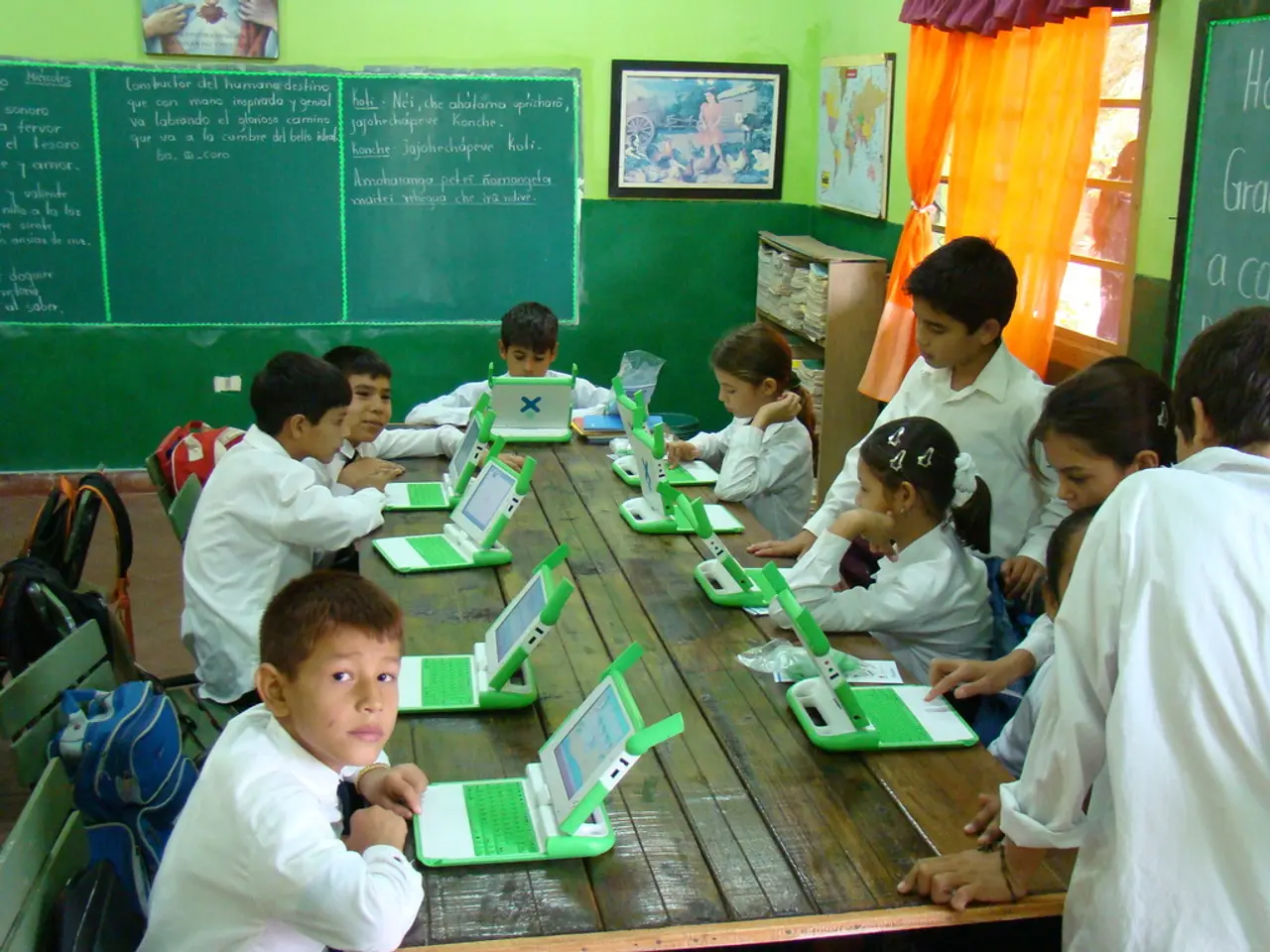Strategies for Initiating a Cybersecurity Mentorship System
In the DeKalb County School District, Dr. Shanique Worthey has launched an innovative digital citizenship program named Cyber Champions, serving over 92,000 students across 137 schools. The program, which focuses on developing soft skills such as communication, collaboration, and presenting in front of an audience, has proven to be a resounding success.
The Cyber Champions program covers a wide range of topics, including privacy, reading privacy statements, using artificial intelligence, and shopping safely online. Worthey's approach encourages breaking information into smaller, digestible pieces to facilitate peer-to-peer learning, and she provides teachers with a template to align the lessons to their respective grade levels.
The initial expectation for the number of students participating was around 25, but the program received applications from approximately 100 students. To manage this increased interest, Worthey recruited 12 teachers to help facilitate virtual meetings and run small breakout rooms.
The program reaches out to a diverse audience, including peers, classmates, parents, teachers, the local community, and beyond, inviting them to share lessons and participate in events such as tech fairs and tech cafes. Worthey even encourages students to create recruitment videos for the Cyber Champions program.
Recognition for teacher-volunteers is a key aspect of the program, with personal recognition, items bearing the Cyber Champions logo, district-wide news flashes, and gift cards offered as rewards. Worthey has been recognised as an Innovative Educational Technology Specialist at the Southeast Regional Leadership Summit and has received the Innovative Educational Technology Specialist award for her efforts.
The Cyber Champions program also aims to provide students with opportunities to learn about careers in cyber security and IT. Worthey has even reached out to the local FBI office for potential partnerships. The program utilises various tools such as Microsoft Teams, Canva, Common Sense Media, and Fortnite for its operations.
By following the steps outlined here, educators can create a comprehensive digital citizenship program that not only educates but also empowers students to be responsible digital citizens. Regular updates, community engagement, inclusivity, and student leadership are key components to the program's success. Implementing a program like this requires dedication, collaboration, and a commitment to continuous improvement.
The digital citizenship program, Cyber Champions, within the DeKalb County School District, includes topics like privacy, AI usage, and online shopping safety, with a focus on developing essential soft skills. To facilitate peer-to-peer learning, Dr. Shanique Worthey breaks information into manageable parts and provides teachers with a grade-level lesson alignment template.
Initially anticipating 25 participants, the program saw interest from around 100 students, leading to the recruitment of 12 teachers to assist in virtual meetings and small breakout rooms. The program reaches out to a diverse audience, including students, parents, teachers, and the local community, encouraging participation in tech events.
Recognition for teacher-volunteers is a vital part of the program, offering personal recognition, branded items, district-wide news flashes, and gift cards as rewards. Worthey's efforts have earned her recognition as an Innovative Educational Technology Specialist at the Southeast Regional Leadership Summit and the Innovative Educational Technology Specialist award.
The Cyber Champions program aims to equip students with knowledge about cyber security and IT careers, even reaching out to local FBI offices for potential partnerships. Tools such as Microsoft Teams, Canva, Common Sense Media, and Fortnite are used to operate the program.
By following the steps outlined, educators can create a comprehensive digital citizenship program that not only educates but empowers students to be responsible digital citizens. Key components include regular updates, community engagement, inclusivity, and student leadership, requiring dedication, collaboration, and a commitment to continuous improvement.




